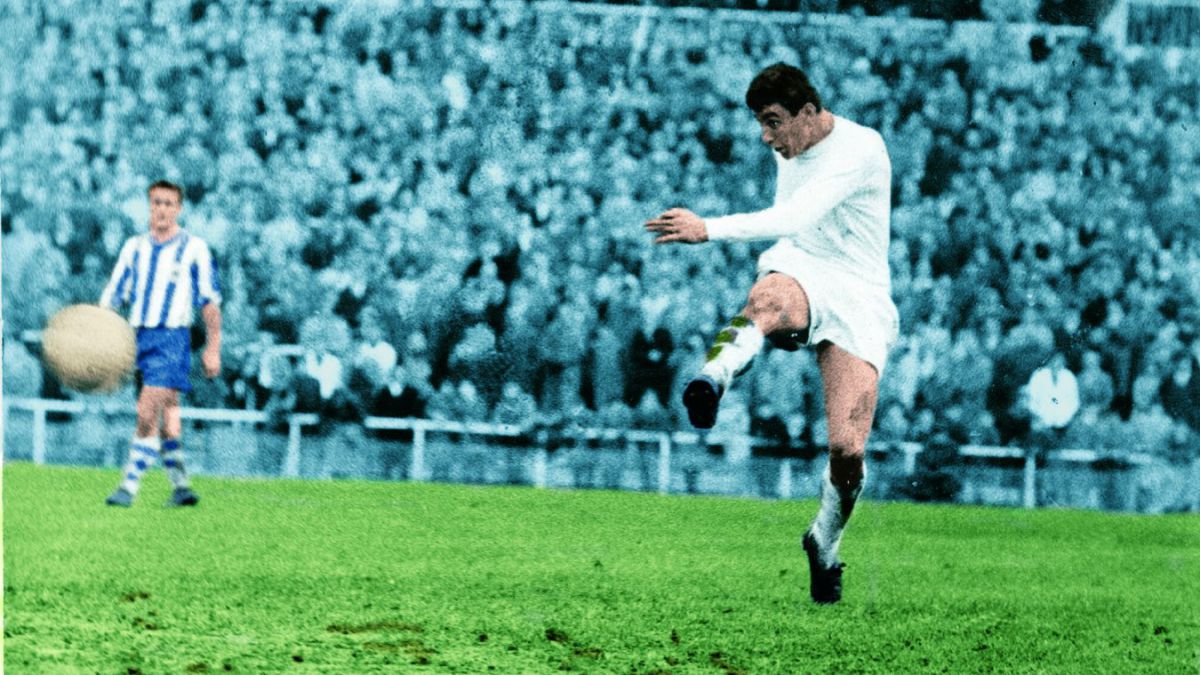Enrique Pérez Díaz, popularly known by the nickname of Pachin, died last night in Madrid. Born in Torrelavega (he was born on December 28, 1938), Santander, Pachín became one of the links between two historical generations of Real Madrid: the 1960s and the ye-yés (1966). Pachín started in the team of his hometown, in Gimnástica, before arriving at Burgos, where he would stand out and get into trouble when he signed for Celta and Osasuna, a club where he would arrive in 1957. While in the rojillo team he would sign for Real Madrid in a striking way: by decision and impulse of Alfredo Di StéfanThe.
The 1957-58 campaign was going on when the Whites went to Pamplona to play with the Navarrese team. The week before the clash, Osasuna coach Sabino Barinaga, who scored the first goal for the Santiago Bernabéu, entrusted him with marking Ferenc Puskas. The man was pensive about the figure of the Hungarian, who on the same day of the match went for a walk around the city of Pamplona, and when he turned a corner he ran into the plump figure of the Magyar. He thought, ‘I shouldn’t be in trouble’, but when push comes to shove, Pancho he haggled in a thousand ways. At halftime, Barinaga changed the brand: the remaining 45 minutes would have to take over from Alfredo Di Stéfano. Some of his work (persistence, struggle, work, effort …) must have liked The Saeta from the Osasunista defender, who when they retired to the changing rooms at the end of the game, that he went to Pachín: “Hey, you, kid, would you like to play for Real Madrid?”, To which Pachín did not hesitate to reply: “Here, of course! Who does not?”. Di Stéfano was left with the positive response of the young man Pachin.
Time passed and there was no call from the white team. While the Federation forced him not to play for a season due to the duplication of chips (with Celta and Osasuna). That sanction threw Bernabéu back at the time of signing him, but Di Stéfano insisted and insisted that finally the white team ended up hiring him. He could not play either the League or the Cup of the 1959-60 campaign … but yes it would debut in the Glass of Europe. Nothing less than against Barcelona and in the semifinals. Whites won 3-1 with Pachin already in the eleven white headline. That month between the days of April and May they would see a historical record of the Cantabrian: debut with the white jersey, he was cited by the U21 and Absolute teams (defeat against England days before the Glasgow final) and won the European Cup against the Eintracht (7-3). In summer he would play the first leg of the Intercontinental against Peñarol and in September the return: in his first five games he would win two titles, one European and one world …
In this way he began to inaugurate his record, which at the end of his white career in 1968 (after playing 218 games and as a result of a herniated disc), It was made up of seven Leagues, two European Cups, an Intercontinental Cup and a Spanish Cup. He would go to Betis (1968-69 campaign) and end his career in the Cantabrian Toluca, surrounded by his great friends Marquitos, Mateos, Pantaleón and Atienza, who are sometimes joined by Félix Ruiz and Casado. But that adventure, a mix between romantic and epic, would end badly: In a match against the Cultural Leonesa, Pachín, who played with some novels as shin guards, asks for a penalty that is not awarded. He flies into a rage, and the collegiate Anasagasti, expels him. Then Marquitos faces the referee, insults him. And being expelled, he kneels on the ground. In the end, it is the Civil Guard that took the two players off the field … Marquitos will be penalized with 13 games. To Pachín with six. Hanging his boots he would become a coach: He managed to manage Johan Cruyff when the Dutchman signed for Levante in the 80s. He never left the football world: With his close friend Zoco, he set up one of the first soccer camps for children in Sigüenza (Guadalajara), while running a shoe store in the vicinity of the Bernabéu. Rest in peace.

